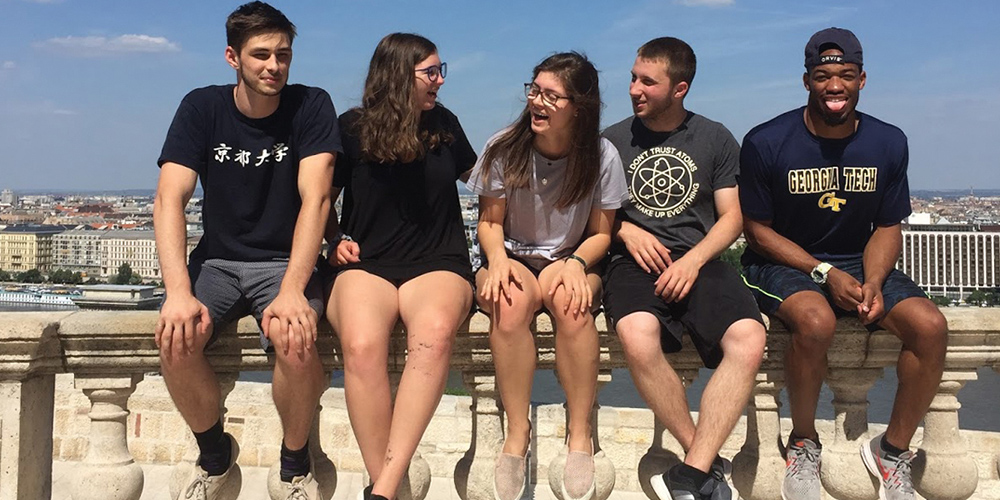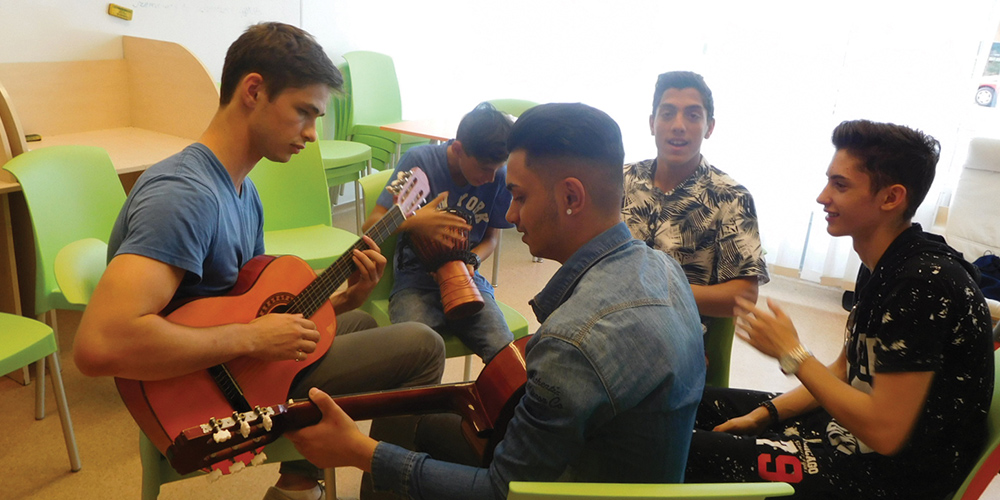Learning to be Social Leaders
By: Kelley Freund | Categories: Alumni Interest

Carl Terns got off a tram in Budapest at the end of a long day and lingered to watch the sunset over the Danube River. He had been to class that morning, where the CEO of a Hungarian nonprofit gave a presentation on microfinance. He then spent the afternoon cooking for a group of kids at Domino Tanoda, an after-school care center.
This was a typical day for Terns this summer: learning, working and experiencing life in Budapest as part of Georgia Tech’s Leadership for Social Good Study Abroad Program, a nine-week experience focused on nonprofits and social entrepreneurship.
Terns and 16 other students began the program in Atlanta, then traveled to the Czech Republic and Poland before beginning internships in Hungary. Classes and guest speakers gave the students a theoretical base for understanding civil society, leadership styles in the social sector, and the rewards and challenges of running these types of organizations. But students also had the opportunity to see how they operate in real life by working directly with a nonprofit.
The organizations that partner with the program include traditional nonprofits as well as social enterprises with a defined business component to support a nonprofit mission. With these companies, students have the chance to do everything from public relations work and grant proposals to creating social media campaigns.
At his internship with Domino Tanoda, which serves families from a low-income area of Budapest, Terns was responsible for cooking, cleaning and organizing activities for kids. He also taught guitar lessons.
Margaret Royal, another participant in last year’s program, performed social media marketing for CEEweb, a group of environmental think tank organizations working to improve biodiversity by promoting sustainable development.

Royal’s experiences with CEEweb taught her the role of business in solving the world’s pressing problems, as well as the strategies these types of organizations use to make the biggest impact.
“Any study abroad is a great way for students to gain independence and a greater understanding of the world through travel,” says Royal, who plans to use her engineering degree to work for a nonprofit upon graduation. “But what made this program in particular so great is we were learning about today’s issues.”
Program Director Dori Pap with the Scheller College of Business says the central and eastern area of Europe was chosen for a specific reason.
“We take a look at the nonprofit sector in the U.S. and how it compares to this very different part of the world, that has a much younger civil society since the fall of the Iron Curtain,” Pap says. “The issues are the same. But when you have a different political system, when you have a different volunteer culture, when funding comes from different sources, the response to these issues is not the same.
"Looking into this topic, combined with the fact that students are actually making an impact by working hand in hand with nonprofit organizations, makes this program very unique."
Pap says the lessons students take away from their international experience will set them apart in their next interview. Lessons like learning to run an organization with a very small staff. Or the kind of leadership it takes to inspire employees in the nonprofit world, where money can’t be a motivating factor.
“I feel that there are many people in the world trying to do good,” Terns says. “But I’ve discovered that those intentions must be paired with knowledge in order to actually achieve that good. I think it is necessary for people to participate in programs like this and get the hands-on experience that it provides in the social sector.”
The bonus? Gaining that knowledge in a place where you can watch the sun set on the Danube. “From taking public transportation two stops to the gym to taking weekend flights to places like Croatia, this experience was the most incredible adventure I have ever been on,” Terns says. “I was thrown into a new world with a new culture and a new society over and over again. I constantly had to adapt, assimilate and grow, and I loved every minute of it.”


